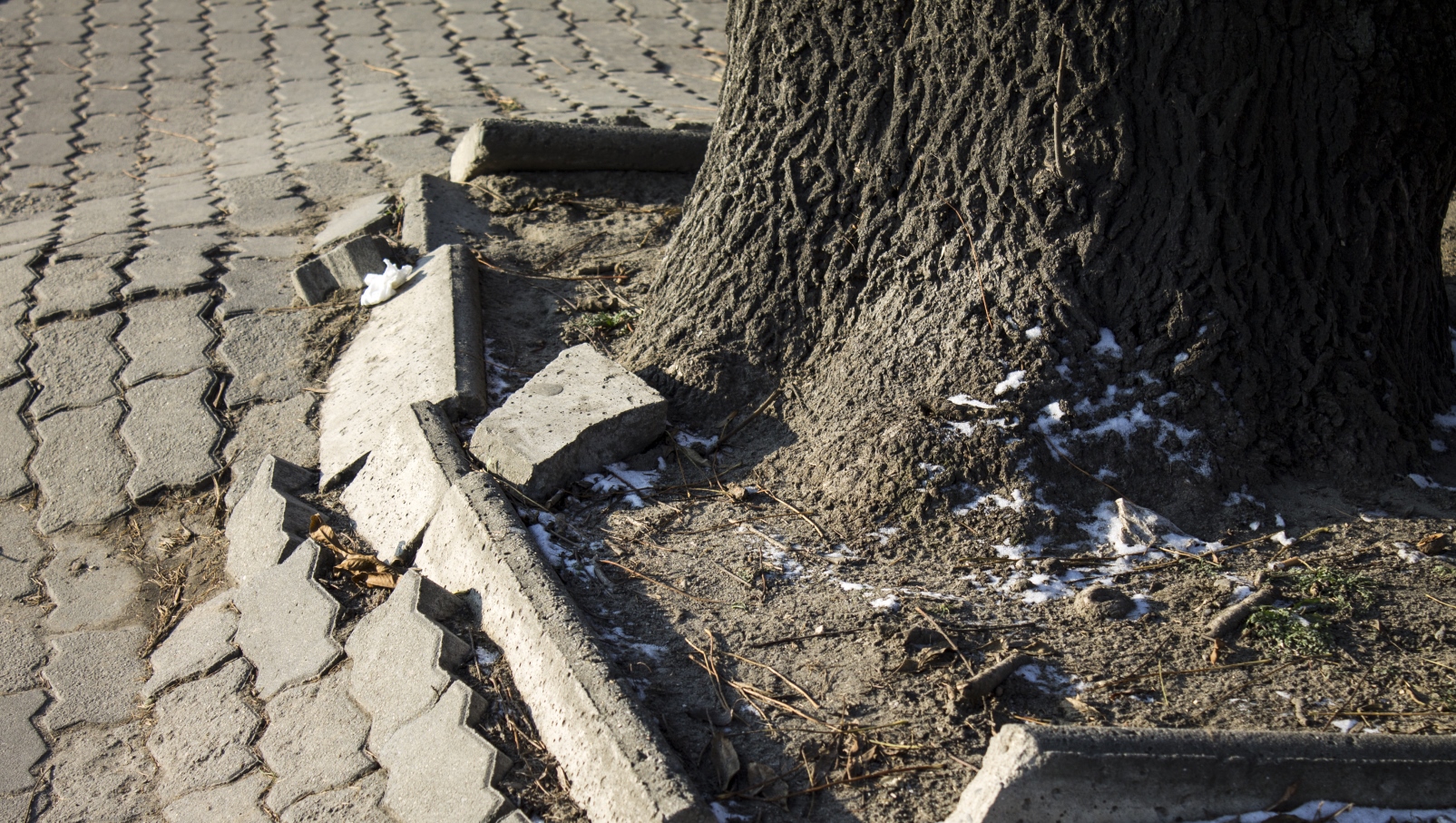
New ‘safe tunnel’ from Israeli sustainable agriculture startup solves the problem caused by the urban clash of trees and pavements.
By Abigail Klein Leichman MAY 15, 2019, 6:50 AM
Anyone who’s tripped on a piece of pavement broken up by tree roots is familiar with the problem: Trees and sidewalks don’t play well together.
Trees will die if their roots can’t grow freely with adequate nourishment, and the roots will buckle the sidewalk if they have no better alternatives for expansion.
Sustainable agriculture startup FrizWeed of Ramat Gan recently introduced a patented product, TreeTube, which lets trees grow healthy roots without disturbing the pavement.
“TreeTube is a game-changer,” says FrizWeed cofounder Jonathan Antebi.
The lightweight steel and plastic modular system provides a safe tunnel in which urban tree roots can grow and be nourished.
Inside the TreeTube are a non-compressed soil substrate and a unique incorporated aeration and watering system that can be combined with many types of control and monitoring systems.
“Most important is the 100 percent available soil for the tree,” says Antebi. “Our competition is divided into those providing a significantly smaller percentage of available soil for the tree and those charging more than double the price per cubic meter.”
He and cofounder Roni Cohen noodled on this problem following a meeting with landscape architects to find out their pain points. The landscapers said they wanted a better solution for the tree-sidewalk conundrum.

Tree roots break sidewalks when they have nowhere to grow. Photo by Heroc/Shutterstock.com
“We decided to give it a shot. We did market research and brought in a top landscape architect who deals with trees in Israel and the Netherlands, and a leading agronomist focusing on tree wellness,” says Antebi. “We researched a few months and came up with a solution that’s been highly appreciated by construction designers and architects.”
TreeTube is capable of bearing a 30-ton load (say, a movers’ truck that parks on the sidewalk), and can be installed in corners or other tricky spots due to its modularity. It can even be crossed with a sewage pipe.
“It’s really easy to install, from 3 cubic meters up to 10, 20 or 30 cubic meters underground,” says Antebi.
First installation in Tel Aviv-Jaffa
The first two TreeTube installations were done in the Jaffa area of southern Tel Aviv in February. Eight more will soon be installed in Tel Aviv suburb Hod Hasharon as part of a street reconstruction project.
“We have a lot of interest from the Tel Aviv-Jaffa municipality and from other Israeli cities,” FrizWeed cofounder Roni Cohen tells ISRAEL21c. “We are meeting every day with engineers and landscape architects about some big projects.”
Although it will take a few years to see the results of the pilot installations, Cohen says: “When you give a tree good conditions it should grow well and fast.”
FrizWeed, a bootstrapped company, was established early 2016 by Cohen and Antebi.
“Our approach is to look for sustainability solutions with advantages for our customers. Environment is an issue for us, though we are not tree-huggers,” says Antebi. “We are good in R&D and bringing ideas into reality.”
FrizWeed’s first product, FrizDisc, is a specially designed foam plate offering multiple advantages for plants: it protects them against weeds, improves their stability and thermal insulation, and allows for efficient irrigation with less water and herbicides.
Made with 85% recycled material, FrizDisc is selling well in the European do-it-yourself market, says Cohen. “We are looking for a manufacturer in Europe to be close to the market.” The product is also being tested in the United States.
FrizWeed’s other products are FrizBeads, organic beads that improve conditions and moisture control for better plant growth; FrizMat, a foam mat that controls the moisture rate of crops such as watermelons and strawberries and allows for slow-release additives; and FrizMulch, a unique reflective mulch that prevents weed germination, reduces temperature, reflects sun rays and improves growth.